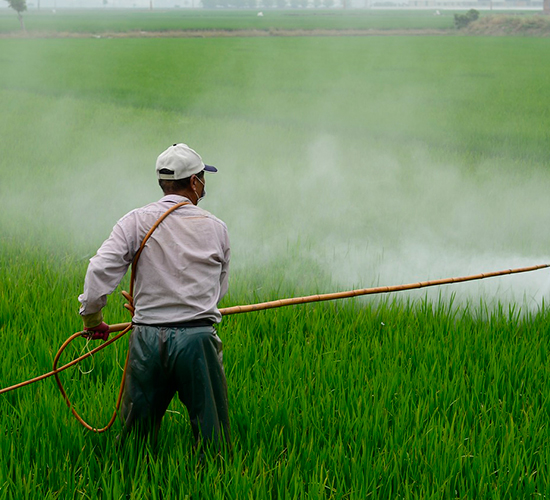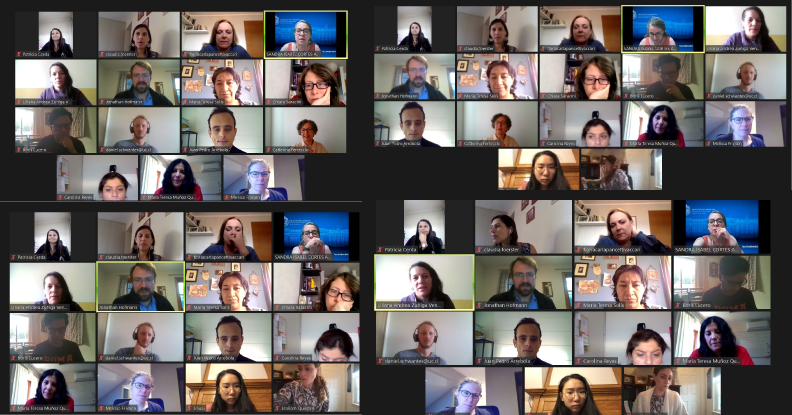National and international scientists met to discuss research and challenges on pesticide use in Chile

Agricultural pesticides are chemicals widely used to improve forest productivity, However, misuse of these substances can cause adverse effects on human health and the environment. That is why there is constant concern in communities and regular authorities to ensure faithful compliance with existing regulations and to strengthen health and environmental surveillance systems.
During the morning of Thursday 14th and Friday 15th January, a number of national and international experts met, who addressed the findings of their research on agricultural workers exposed to pesticides.
"The objective of this meeting is to strengthen the Pesticide Researchers Network, through a shared work with international experts and their researchers from the Universities of O'Higgins and Universidad Católica del Maule and Católica del Norte, focusing our research questions on issues that are urgent about the use of pesticides in agricultural workers,"Dr.. Sandra Cortés, Principal Investigator of the Pesticide and Agricultural Workers Research Network (www.riplag.cl) and Associate Researcher at the Advanced Center for Chronic Diseases (ACCDIS).
The meeting was attended by researchers Jonathan Hofman and Melisa Friesen of the National Cancer Institute (NCI) john Hopkins University (DRA. Lesliam Quiros-Alcala), both from the United States and the University of Granada (Dr. Juan Pedro Arrebola), including methodologists for measuring pesticide exposure and health damage for agricultural workers. National researchers from the Universities of O'Higgins also participated during the activity (DRA. Claudia Foerster), Universidad Catolica del Maule (Dras. Maria Teresa Muñoz, Boris Lucero, Liliana Zúñiga, Chiara Schiarini), Northern Catholic University (DRA. Floria Pancetti) and advisors from Chile's Ministry of Health (EU Patricia Cerda).
Among the main findings in pesticide research in Chile, the Dra. Sandra stressed that exposure to pesticides, especially in farmworkers and gated communities has led to an increase in cognitive decline, both in children and adults. As for the workers, have also been identified metabolic alterations including, for example, diabetes. Through specific environmental monitors, has been evidenced the presence of pesticides that are known as endocrine disruptors or some carcinogenic in nature. "These findings represent a major research challenge for the country, as they demonstrate that our regulations and auditing processes are still insufficient, and an example of this is that in Chile pesticides that are banned elsewhere in the world are still used," added researcher ACCDIS.
Regarding the challenges and opportunities that researchers faced during the meeting, focusing work on chronic damage to workers' health, "we are very concerned about the change in the type of pesticides currently used, where chemical compounds have been incorporated we don't know how much they could affect the health of farmworkers and their families", explained the Dra. Sandra Cortés, who also added that another major goal is to strengthen the research network and deliver our knowledge and differences to improve the conditions of workers and surrounding populations.
Our goal is to transfer these findings with decision makers, involving companies that use these products, and oriented its actions towards reducing the use of dangerous pesticides together with educating the population to reduce exposure in the field of their daily work. "For us as researchers funded by Chile's National Research and Development Agency this learning is of great value and commits us to continue working together with national and international partners in research on the use of pesticides in the agricultural world", researcher Sandra concluded.

